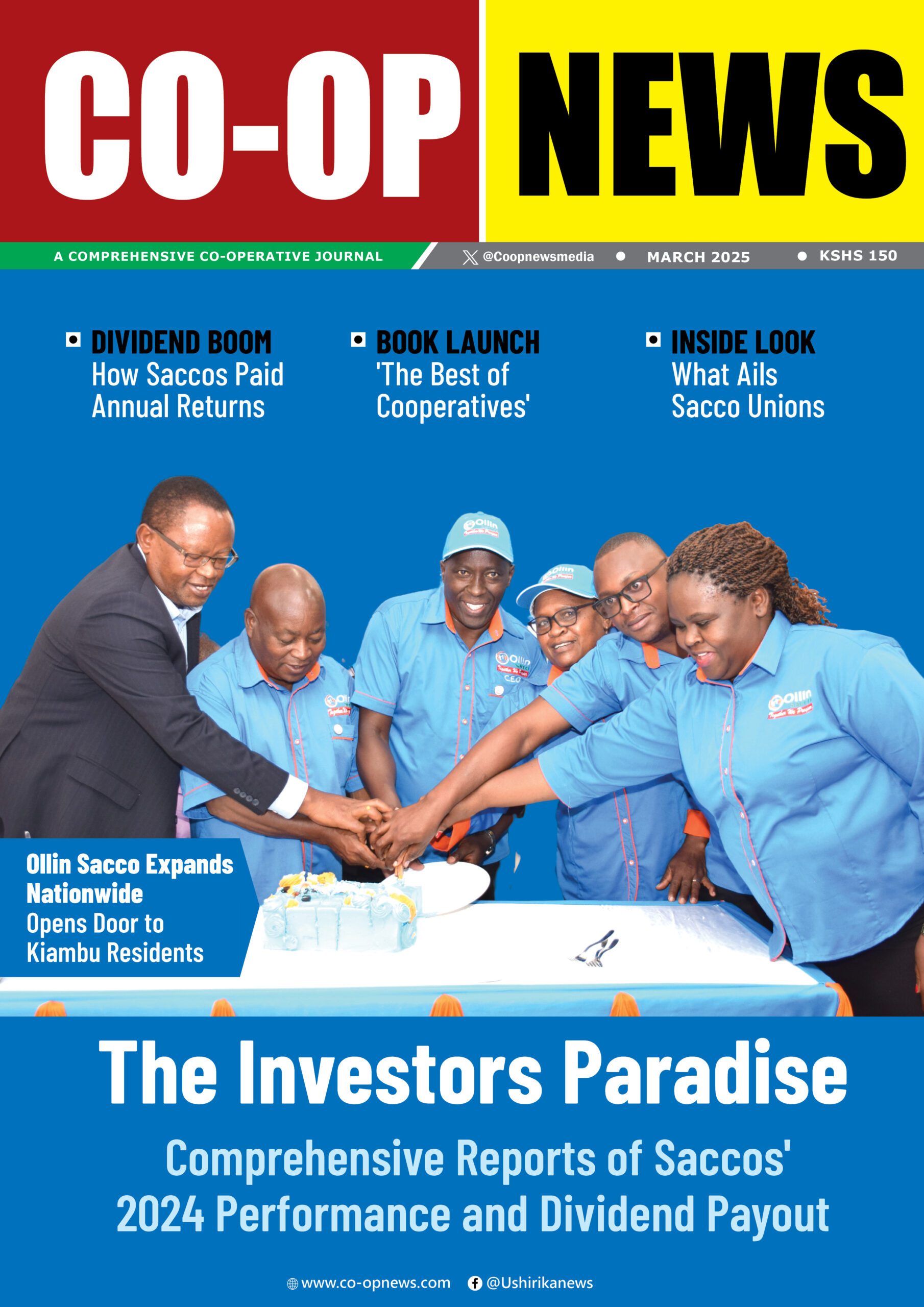Jamii Sacco Society has identified critical strategies to drive its performance and profitability upwards, most importantly entrenching a saving culture among its members and, by extension, the country.
Backed by a robust information communication technology, the strategies will build on a strong capital base, reduce portfolios at risk and increase membership.
Describing the 2022 performance as significantly positive, Board Chair Harrison Katoni said the economy reported slower growth due to rising fuel prices and inflation.
Despite this, the Society’s asset base increased by 7.3 per cent rising from Ksh5.07 billion in 2021 to KSh5.44 billion, consequently cementing its status as a tier 1 Sacco, which according to the Sacco Societies Regulatory Authority (SASRA) comprises Societies with an asset base of more than KSh5 billion. Sacco members earned increased dividends on shares and rebates on deposits, getting a total payout of Ksh395.5 million at a 13% rate on dividends and nine per cent on interest return.
Jamii Sacco plans to deploy enough resources in focal areas that have been found to register faster growth. The Sacco has also put in place a mechanism to improve operational efficiency and lower the cost-to-income ratio by 2025.
Its share capital registered the healthiest growth, rising from KSh246.04 million in 2021 to KSh292.19 million, representing an 18.7 per cent improvement. The growth was attributed to the capitalization of dividends and interest of KSh2,000 per member as approved during the 2022 ADM, and the same is expected this year.
Member deposits stood at KSh3.15 billion in 2022, while the loan book stood at KSh3.97 billion. It reported gross revenue of KSh657 million in 2022, lifted by the Front Office Service Activity (FOSA) savings increase to KSh499 million compared to KSh488 million reported in the previous financial period.
Speaking during the Society’s Annual Delegates Meeting at the Boma Hotel, Mr Katoni remained upbeat that they will maintain an upward growth pace.
Sacco CEO CPA Daniel Achieng said an improved share capital would enable it to offer improved products and services, such as loans, at a competitive rate.
The share capital, which he described as the unit of ownership at the Sacco, is the money that is used to do business, and the healthier it is, the better for the Society.
Increased share capital, he argued, will enable them to review some products to enable members to access cheap and improved loans.
With the 2022-2025 Strategic Plan, the Society seeks to improve its membership from 27,000 to 42,000 by the close of 2022 to 42,000.
Once achieved, this will enable the Society to raise the much-needed deposits and enable members to access loans with ease.
He underscored the need for members to embrace a saving culture from an early stage whenever they get employed, besides improving their financial literacy skills.
Part of their growth strategy also includes recruiting new members, especially those employed by the government in various parts of the country.
“We are doing everything to realize improved growth and as leaders, we need to work together to meet or even surpass the target,” he said.
Aggressive marketing strategies targeting institutions and continuously reviewing products and services to meet and exceed member expectations topped its growth objectives.
“Every organization has a goal to be achieved and as management, part of that are appraisal tools to measure performance,” he said.
He reminded the leaders that though the youth remain a key market segment that can propel its upward growth trajectory, they must be alive of other factors about them, such as their low saving appetite and high loan appetite.
He urged the board, management and delegates to lead the way in accessing their services through their digital platforms.
“As leaders, we must impart financial knowledge so that right from the time one is employed and exit, they have a financial plan,” he said.
He identified financial literacy as a key component of their growth projections aimed at enabling members to save early and focusing on priority areas whenever they borrow loans.
Stated CPA Achieng: “Educating your children is not an investment but a responsibility and buying a car is not an investment but a liability.”
He advised members that anything that generates an income is an investment, and once this is done, members will lead meaningful and fruitful lives even after retirement.
Once this is not done, he said that members would withdraw all their savings after retirement to start to live, such as starting a business or building a house, investments they should plan earlier.
He also promised the delegates that they would explore how best to put into use proposals fronted by members to ensure they are in tandem with the Sacco’s objectives and vision. The Sacco has put in place a new system with tight controls to safeguard members’ money.





